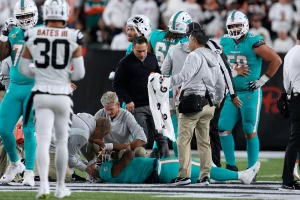By Grace Park, Staff Writer
It can be challenging to differentiate fact from misinformation when it comes to supplements because there is so much hype surrounding their alleged benefits. While vitamins and minerals are crucial for good health, consuming them as pills, capsules or powders is not necessary.
The U.S. Preventive Services Task Force (USPSTF) recently issued a statement that there is insufficient evidence to support the notion that taking supplemental vitamins and minerals can prevent cancer, cardiovascular disease or mortality.
Considering the underwhelming research, it might be worthwhile to consider whether taking vitamins on a routine basis is necessary.
“In some cases, yes they are,” Post nutritionist intern Anthony Hannold said. “Doing something like getting a Vitamin D check or B12 and folate are typical vitamin samples that a doctor will check on your yearly visit because those are typical deficiencies a person could have. They [vitamins] are necessary in certain situations.”
Junior nutrition and dietetics major Arianna Stolz takes multivitamins every day, but agreed with Hannold.
“Personally, I take a multivitamin that has all of our essential vitamins and minerals, just to give me that safety net to make sure I am getting what I need,” Stolz said. “However, vitamins and supplements are not really necessary. This is not acknowledging specific health issues which may require them and can just be expensive.”
Although vitamins and supplements are widely used, their lack of FDA approval raises questions regarding the safety and effectiveness of these items.
“It’s always good to check with a medical professional and do your own research rather than taking a vitamin because you feel like you should be. There’s an appropriate amount to use and that’s what you should strive for,” Post nutritionist intern Machaila Byers said.
TikTok has become an increasingly popular source of inspiration for people looking to improve their health and nutrition in recent years, but it also gives some a platform to offer health hacks that aren’t always reliable.
Hannold advised looking at a person’s bio to see whether they have the appropriate credentials if you do find yourself questioning the credibility of your favorite TikTok health professional.
“If they have a RD after their name they’re probably pretty reputable. That requires four years of schooling – anatomy, physiology, chemistry, microbiology and then you have to do rotations. Having an RD after their name is something I would look for, that is someone who is highly trained in evidence based practice,” Hannold said.
Some of Stolz’s favorite influencers who support research-based nutrition evidence are Steph Grasso, Claire Chewning, Diet Culture Rebel, Sofia the RD, Find Food Freedom and Abbey Sharp.
It could be tempting to try the strawberry-flavored multi-gummy that your favorite influencer has recommended, but you should probably stay clear and search for better options.
“Incorporate a lot of different foods, colors, textures. There’s vitamins and minerals a lot more absorbable by the body when you take them in as whole foods versus a synthetic form which is going to be a supplement. Certainly you can indulge from time to time but you can’t eat fast food three times a day and expect vitamins and supplements to cover your bases,” Byers said.
Instead of relying on vitamins and supplements, many nutritionists say that people should develop healthy habits that support their physical health and general wellbeing.
“The best way to live this lifestyle is by making it customizable to your life and your needs. Nutrition is very individualized and will look different for everyone,” Stolz said.
Campus nutritionists are available to meet with students to discuss nutritional questions and concerns. To schedule an appointment with a nutritionist, email liunutritionist@gmail.com.




Be First to Comment